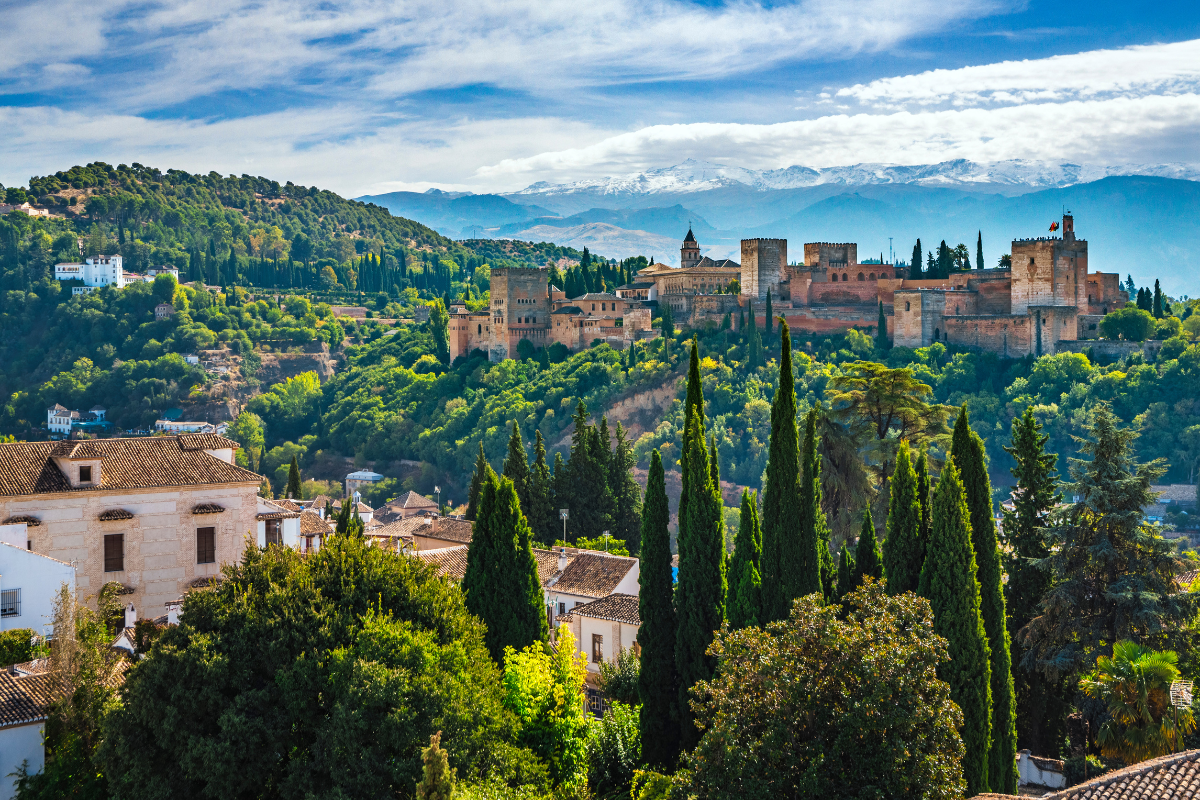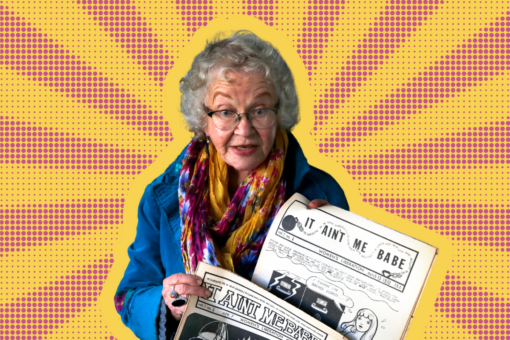When I was a sophomore in college, the opportunity to study abroad presented itself. I went to a small school in New York, Cooper Union, so our options were limited. They offered Comillas University in Madrid, Spain and I instinctively knew I wanted to go there.
At that time, I didn’t really understand what Sephardic Jewish identity meant to me. I knew I was Sephardic; my grandmother instilled a pride and love of our tradition and my grandfather would sing in Ladino. Still, being surrounded by Ashkenazi dominance most of my life made me devalue my own roots. Sephardic Judaism is a thing of the past, something that perhaps is not relevant to me anymore, I thought.
Yet here I was, excited to embark on a journey to Spain. I did not connect the two at first, the land of Andalusia and my lineage. But of course, as I spent the summer there learning about the history and visiting cities like Toledo, the unknown memories of my bones awakened. There is something here for me, I knew.
After that summer, it took me some time to return to Spain. I felt the land calling me back a few times and one year I acquiesced and visited Barcelona. I was intrigued by the Jewish history there so I traveled to visit Girona, where there was a Jewish museum filled with teachings of Kabbalah, stories of Sephardic sages and artifacts of the culture and history of my tradition.
Something touched me there in Girona. I all of a sudden felt that there was something alive in the city that was paying attention to me and my visit. I spent Shabbat there, on my own, and as I viewed the magnificent sunset from an overlook, I felt how the rays of light shone with a particular expression that felt familiar. The sun rises in all cities, yet there are some lands where she shines extra brightly. This to me is not simply the light of the Sun, but the light of God too.
It was there that I began to feel this deep ancestral call. I did not have words for what I was hearing, but somatically I felt a certain transmission of knowledge. I started contemplating the presence of all the Jewish mystics that came before me on this very land, expounding words of Torah to reveal the light of God.
My Judaism has always centered around God, though I often feel isolated with this perspective in the Jewish world. In many Jewish communities, learning is prioritized over devotional practices and sometimes even the word God can be controversial. Yet here in the mountains of Girona, I remembered that my lineage is full of God lovers — those who have dedicated their lives to creating frameworks of knowledge to understand God.
This is the secret of Kabbalah: the sacred teachings that shine a light unto the realization of God through embodied experience. By connecting my body with the land and practicing deep listening, I felt an abundance of support from the ancestral realm guiding me to this knowledge. They became my mentors: the ones I do not have names for but whose love and care I can feel in my body.
I did not know how Sephardic I really am until I reconnected with the land of Andalusia. All of a sudden, so much about my life made sense. Over the years, I began teaching the wisdom I acquired through spiritual journeys at the mystical school I founded called Malchut. I even created my own curriculum on cosmology of creation, inspired by the teachings of Kabbalah. And the more I taught, the more the call to return to Andalusia became stronger.
Finally, my beloved friends gifted me a birthday pilgrimage to Cordoba – Granada – Seville to celebrate last Elul. I went with the intention of re-connecting to the wisdom I touched in the land years ago and with the desire to visit the Sephardic channellers of light whose spirits still roam the land. The timing felt aligned, as Elul is the month of spiritual preparation and purification for the High Holidays, and this provided me with a portal of transformation. The question that kept appearing to me was what does return to a land that displaced you look like?
Knowing that others have the same question, this year I organized a communal pilgrimage to Andalusia to revive Sephardic Jewish mysticism.
On Rosh Chodesh Elul of this year, 20 Jews from all over the world came together to make pilgrimage and celebrate the new moon on the rooftop overlooking the Alhambra. We stayed up late every night, singing the Sephardic Selichot service, our voices uniting in devotion. We invited our ancestors to join us in a ritual of collective witnessing and created a container for ancestral healing sessions. We learned about the Sephardic sages, the teachings of Kabbalah and what it means to move from the head to the heart. We meditated together, awakening our hearts and connecting to our bodies. We walked the land together, remembering what is stored in our bodies through our lineage. We mourned and we grieved for all that was lost. And we celebrated for the magic we created together. We even blew the shofar together in the Alhambra, letting the mountains remember the sound of the ram’s horn.
There is much more to write about our time making pilgrimage to Andalusia, and everyone had their own individual experience as well as the communal experience the group shared. For me, return to a land that my ancestors loved is healing. There were many parts of my life that were confusing to me until I returned. My background is in electrical engineering and I now teach spirituality. The most common question I receive is how that journey from science to spirituality happened. But in Andalusia I remembered that for my ancestors, these fields were one and the same. Geometry, poetry, mysticism, mathematics, art, architecture, philosophy — all fields of knowledge were interconnected in the path to knowing God. There was no contradiction between them but rather a weaving of Divine unity. In Andalusia, I could integrate the engineer in me with the mystic, uncovering the philosophical side of me alongside the artistic. This orientation to the world celebrates the expansion of the infinite paths and devotes itself to the remembrance that all paths lead to the One.
Perhaps the wisdom our society needs lies here, in the hidden rays of Andalusia: a world that at times feels lost yet still pulses with aliveness to those who listen and desire to draw near. Perhaps Sephardic Judaism is not a thing of the past, but rather a much needed revolution, in our Jewish world and in the world at large.



